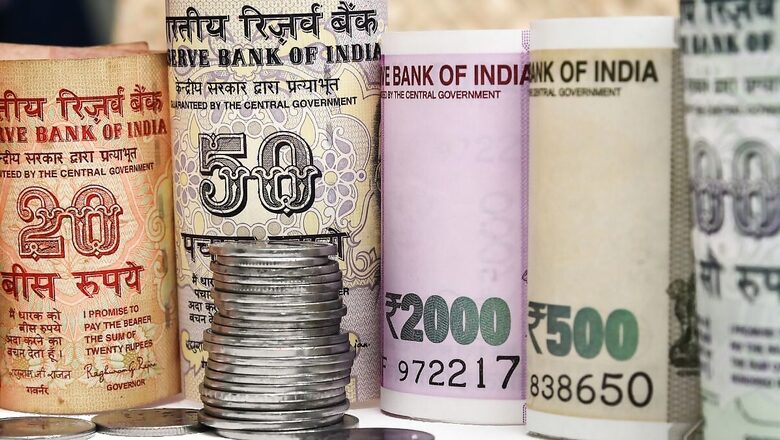
views
The Supreme Court of India on February 15 held the Electoral Bonds Scheme as unconstitutional. Electoral Bonds, which was a kind of promissory note, was an instrument of funding political parties since 2018. The apex court also held that the bonds are violative of the right to information under Article 19(1)(a) of the Constitution. The scheme was aimed at checking the use of black money for funding elections but was criticised for lack of transparency.
As the Supreme Court held the Electoral Bonds Scheme unconstitutional, it is time to rethink another alternative for financing the elections, which is state funding.
What is State Funding of Elections?
In simplest terms, the state funding of elections means that parties and candidates receive funds from the public exchequer instead of raising money entirely on their own for electoral campaigns and other election-related activities. It is said that state funding of elections promotes transparency provided that proper oversight mechanisms are in place on how these funds are utilised.
What is the Need?
According to a background paper on electoral reforms prepared by the legislative department of the Ministry of Law and Justice, “A major concern associated with the high cost of elections is that it prevents parties and candidates with modest financial resources from being competitive in elections. It is also feared that if candidates need to raise funds from a variety of sources, then their policy decisions after being elected as policymakers may be somewhat biased in favour of groups that fund them. State funding of elections (in various forms) has been proposed as a potential solution to this problem”.
Historical Background
According to a paper by the legislative department, the issue has been debated since 1972 when the Joint Committee of Parliament on Amendments to Election Law expressed the view that the problem of election expenses could be solved only if it was accepted in principle that all the election expenses presently borne by a candidate or the political party should be progressively shifted to the state. In 1974 under the chairmanship of VM Tarkunde, a committee was formed to look into matters of electoral reforms. The committee favoured providing through free public revenue infrastructure of election expenses to be supplemented by expenditure undertaken by a candidate and/or his party within the limits prescribed by law.
According to Subhash C Jain, former secretary of the legislative department, Ministry of Law and Justice, the Dinesh Goswami Committee on Electoral Reforms in its report submitted in May 1990 recommended that state assistance should be given in kind only and not in cash. The committee recommended that state assistance should be extended only to candidates set up by recognised political parties.
According to a PRS research report, The Indrajit Gupta Committee (1998) endorsed state funding of elections, seeing “full justification constitutional, legal as well as on the ground of public interest” in order to establish a fair playing field for parties with less money. The committee recommended two limitations to state funding. Firstly, that state funds should be given only to national and state parties allotted a symbol and not to independent candidates. Secondly, that in the short-term state funding should only be given in kind, in the form of certain facilities to the recognised political parties and their candidates. The committee noted that at the time of the report, the economic situation of the country only suited partial and not full state funding of elections.
The same report states that in 1999 the Law Commission of India concluded that total state funding of elections is “desirable” so long as political parties are prohibited from taking funds from other sources. The commission concurred with the Indrajit Gupta Committee that only partial state funding was possible given the economic conditions of the country at that time. Additionally, it strongly recommended that the appropriate regulatory framework be put in place with regard to political parties (provisions ensuring internal democracy, internal structures and maintenance of accounts, their auditing and submission to Election Commission) before state funding of elections is attempted.
It cites another report titled ‘Ethics in Governance by the Second Administrative Reforms Commission (2008)’ that recommended partial state funding of elections for the purpose of reducing “illegitimate and unnecessary funding” of elections expenses.
However, according to the PRS report, the National Commission to Review the Working of the Constitution, 2001, did not endorse state funding of elections but concurred with the 1999 Law Commission report that the appropriate framework for regulation of political parties would need to be implemented before state funding is considered.
Countries where State Funding of Elections is Allowed
According to an Indian Express report, “In Germany, parties receive public funds on the basis of their importance within the political system. Generally, this is measured on the basis of the votes they received in past elections, membership fees, and the donations received from private sources. German “political party foundations” receive special state funding dedicated to their work as party-affiliated policy think tanks”.
According to the same report in the local elections in Seattle, the US adopted public funding of elections. The government distributed vouchers — each of which is worth a certain amount — to eligible voters. Voters could use these vouchers to donate to the candidate of their choice. The voucher is publicly funded, but the decision to allocate the money is in the individual voter’s hands.
What is the Advantage?
There are arguments both in favour and against state funding of elections. Those who are against it are of the view that it will be a huge burden on the exchequer and ultimately on taxpayers. There are concerns that state funding could be used to the advantage of the ruling party which shall have control over the allocation and distribution of funds, potentially influencing the electoral process.
Those who favour it argue that it will ensure greater transparency and will ensure a level playing field.



















Comments
0 comment